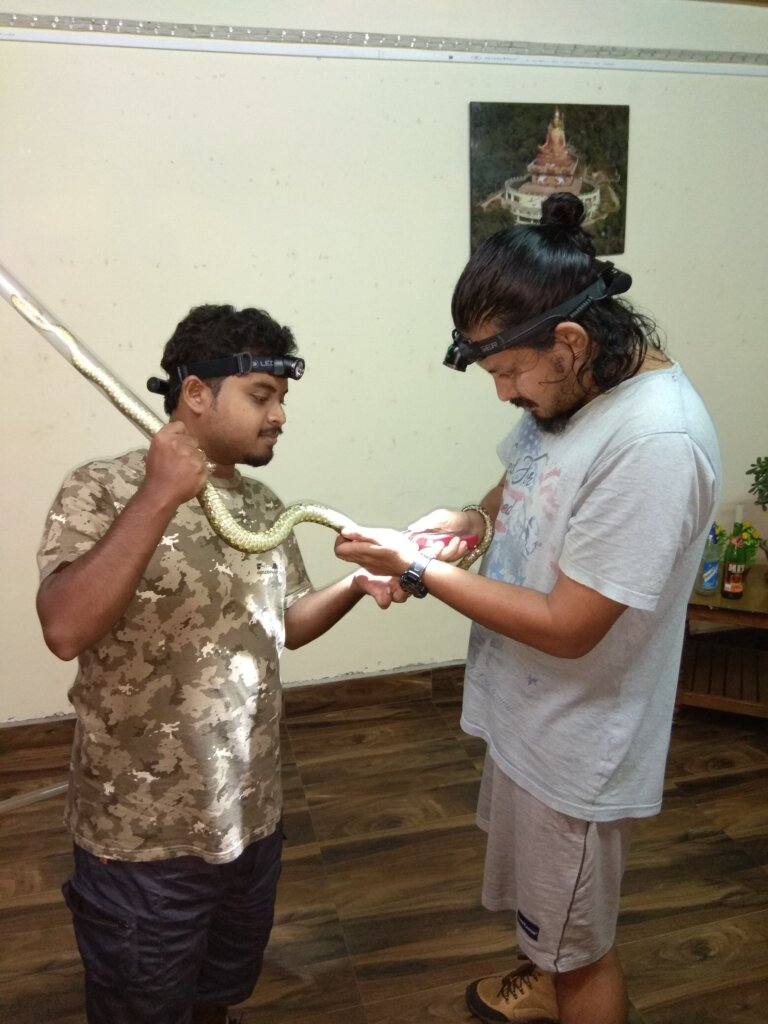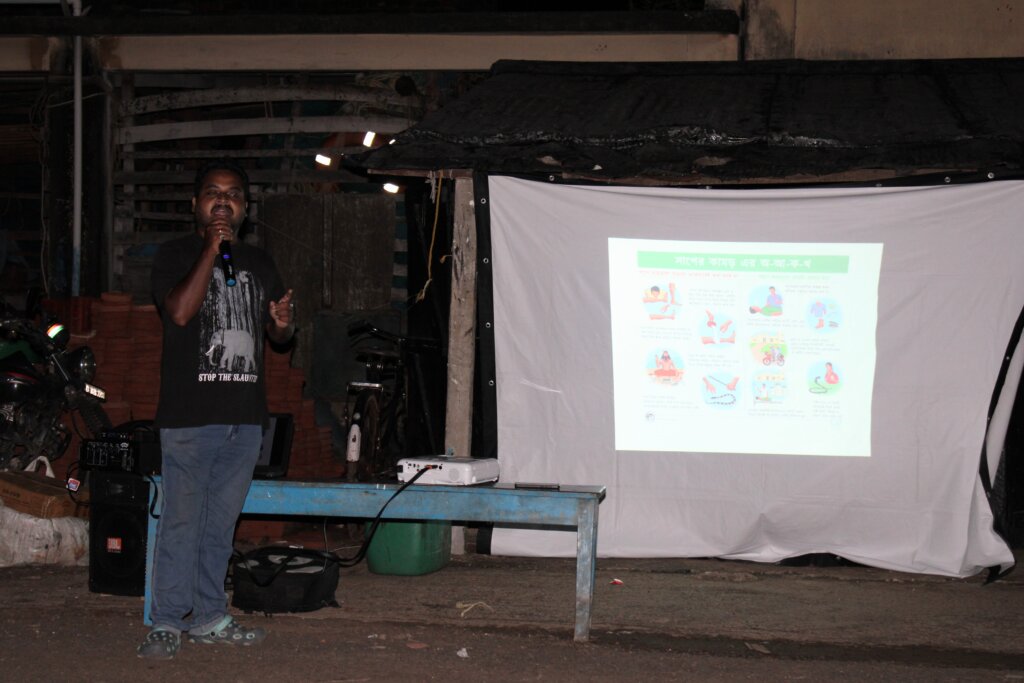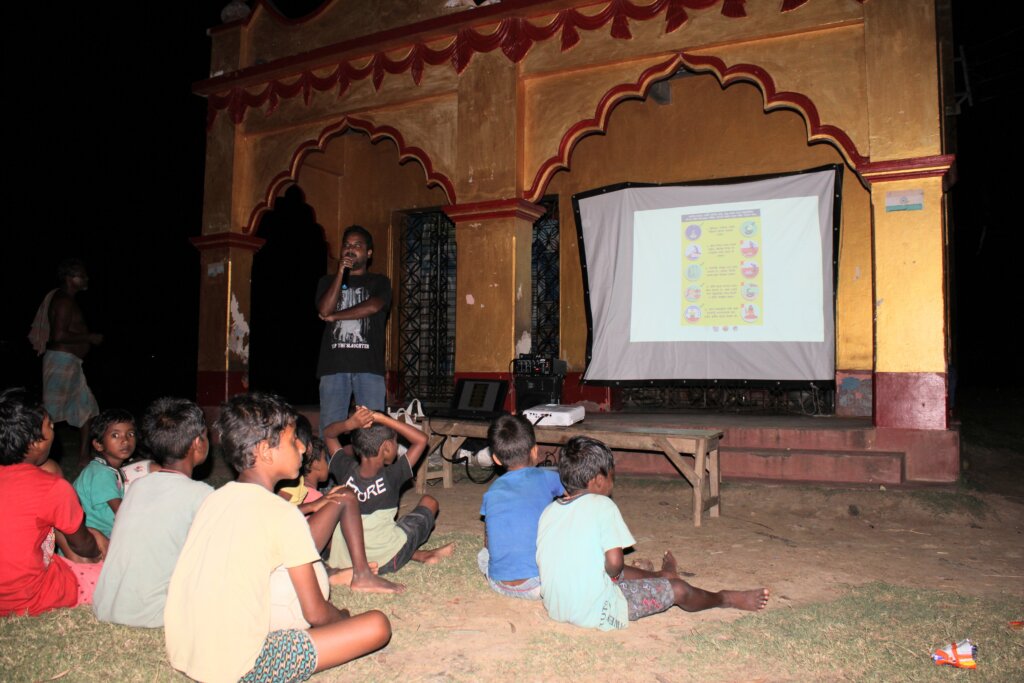Conservation is not possible without mitigating the conflict in rural India
I am an executive member at Society for Nature Conservation, Research and Community Engagement – (CONCERN) and at the same time pursuing a PhD from Annamalai University. My first grant on snakebite research and mitigation is the grant from the Hamish Ogston Foundation in partnership with the Global Snakebite Initiative. My project is focused on sea snake bite incidents and the prevention of sea snakebite and other terrestrial snakebite in coastal regions through awareness and education.

Collecting tissue samples from venomous pit viper for snakebite research.

Anweshan holding an awareness program on the street to prevent snakebite.

Open-air herp school in front of temple to educate children and youth.
I had started my journey with CONCERN as a volunteer and conservation biologist from the year 2015. Initially, my work was focused on conservation, outreach, research and human wildlife conflict mitigation. I soon realised that conservation is not possible without mitigating the conflict especially in rural India where encountering snakes are a part of daily life. In 2018 during my Masters, I observed that fishermen in the coastal areas are under higher risk groups of snakebites. They not only encounter snakes in residential areas but also face sea snakebites as an occupational hazard. Since then with the help of our organization, experts and members, we have been spreading awareness in the remote coastal villages of West Bengal. Before receiving the grant from the Hamish Ogston Foundation most of our work was self-funded.

Anweshan Patra, West Bengal, India
